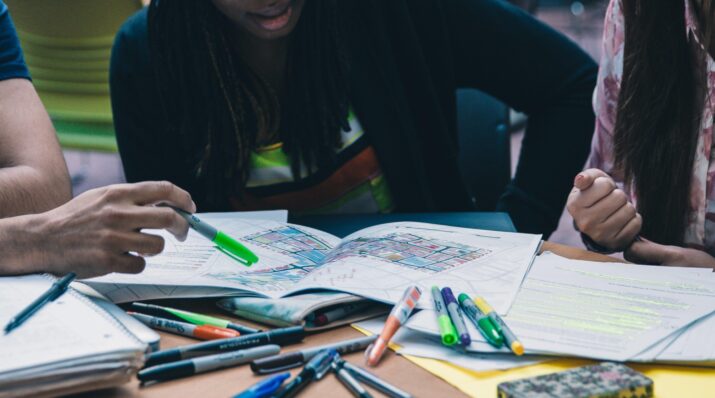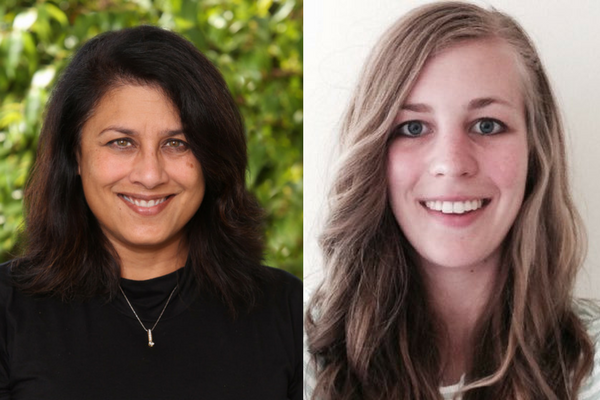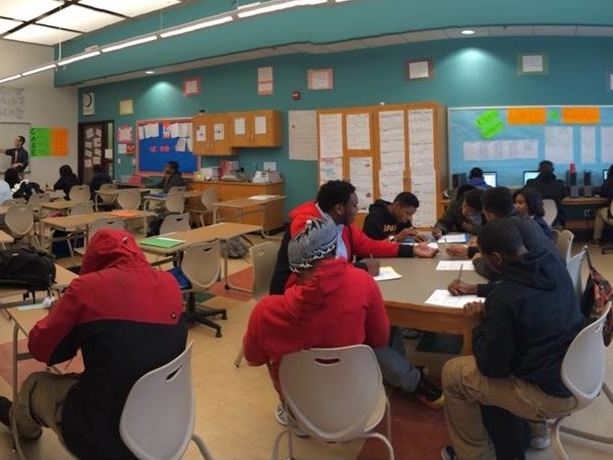Professional Learning
Innovation in Real Time – Part I
Topics

Educators are the lead learners in schools. If they are to enable powerful, authentic, deep learning among their students, they need to live that kind of learning and professional culture themselves. When everyone is part of that experiential through-line, that’s when next generation learning thrives.
School transformation is the hardest work in education. How do you take an existing school with its long established culture, traditions, strengths, and weaknesses, and move it in a new direction?
School transformation is the hardest work in education. How do you take an existing school with its long established culture, traditions, strengths, and weaknesses, and move it in a new direction?
Nine months ago, Jennifer Nicol, Director of Innovation at TechBoston Academy (TBA), an open enrollment school in the Boston Public Schools district, collaborated with me on a post on how to drive a 1,000-student, 6-12 school toward a more student-centered design. We were writing in the hazy hot days of summer when the 2017-18 school year was ahead of us, and now that we’re two thirds of the way through that journey, with snow piled high on the streets of Boston, we want to revisit last summer’s conversation. We’re deeply heartened that the conversation is no longer between two innovation leads, but rather with a growing school community.
Our initial conversation began with Jen’s concerns about innovation being a ‘dessert’—a delicious addition—versus the bread, butter, and vegetables of the main plate of a school day. I suggested a reframing that enabled innovation to be considered in terms of empowering teachers to pose deep questions about why they approached instruction as they did, and then to empower them to experiment with the goals of increasing student engagement and redesigning curriculum toward long-term, student-centered, real-world relevance beyond the near horizon of state testing.
With resources from the BPS Office of Innovation, TBA recently won two financial supports that enabled them to explore these directions. In October 2017, TBA worked in collaboration with STEAM Studio Foundation and MIT Edgerton to receive a two-year planning grant from the Barr Foundation to begin the high school redesign process. The Barr initiative is primarily focused on ninth grade, and moves forward through the rest of high school. It began with visits to schools and to MIT, which have served to create a new energy in TBA. It has also energized the middle school team to begin exploring new pathways focusing on questions of relevance and engagement. In January 2018, the middle school team was accepted into the Mass IDEAS School Design Institute, a new initiative from Next Generation Learning Challenges (NGLC) to ignite innovative, high-quality school models in Massachusetts. Both of these opportunities are bringing funding, coaching, and cohort camaraderie, and they’re enabling a much broader 6-12 faculty and student conversation about innovation. Below are perspectives from TBA faculty on how change is happening.
Internal Relationships: Jennifer Nicol, Director of Innovation, TBA
TBA is capitalizing on relationships to move innovation into the center of our work. Walk through the halls and you’ll see students troubleshooting a malfunctioning robot, an impromptu conversation among colleagues about race and equity, adults and students addressing one another by name, and teachers engaged in Critical Friends Groups. One of TBA’s greatest assets has been our commitment to strong authentic relationships among all members of our community; these relationships have now become a driving force behind our innovation.
It is through strong relationships that TBA is beginning to reduce initiative fatigue, strengthen learner-centered practices, and take risks to create meaningful change. By capitalizing on relationships, colleagues are transforming their professional interactions from simply offering support after a tough day to co-constructing fail-forward opportunities. The definition of a TBA educator is slowly yet steadily evolving to include a practitioner of iterative design. By capitalizing on relationships, we’re transforming from knowing our students as individuals to designing learning experiences that will engage and deeply empower them to create change. TBA has always been a strong supportive community; we’re now drawing upon our strengths to grow our practice as innovative resilient designers.
Stay tuned for more insights from our team at TechBoston Academy in the next post of this two-part series: Innovation in Real-Time - Part II.




